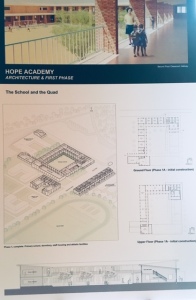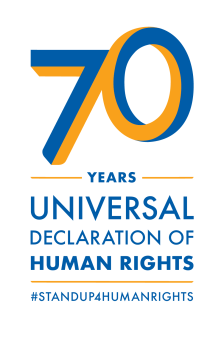During this week, I attended my third The Child is Innocent (TCII) fundraiser in Boston courtesy of one its co-founders – Kevin Schwartz, MD of Massachusetts General Hospital. I was introduced to this non-governmental organization by Stefano Rossi of the Centro per la Cooperazione Internazionale in Trento, Italy and have found it a good way to stay connected to the people and well-wishers of Uganda. Kevin and his team at TCII are planning to build a new school campus called Hope Academy in Gulu, Northern Uganda in three phases. The detailed architectural plans were on display at the event to encourage others to donate and get involved.
What impressed me about this organization was its core group of volunteers and dedicated supporters. They are committed to the TCII mission and travel frequently to Northern Uganda to meet with local staff to be proactive with decision-making and fundraising. Perhaps one area they could improve upon relative to other NGOs I have worked with is on the concept of “radical transparency.” Attending a fundraiser in Boston with little knowledge of the issues on the ground in Northern Uganda, I can understand how some observers might feel skeptical as to how funding might be mismanaged. This is not a criticism of TCII but of many charities around the world. Therefore making budgets, financial statements and fundraising transparent and available to everyone via the Internet might garner even more support and goodwill for TCII and other similar charities.
In the spirit of transparency and collaboration, the front cover of both the printed and online version of this blog are of a group of African HIV orphans who I had the privilege of coaching and refereeing more than fifteen years ago in a suburb of Kampala, Uganda. Though not part of my official United Nations Volunteer terms of reference (TOR), it was a very signifiant experience in my personal growth and development. Hence, I would like to acknowledge Stefano Rossi of the Centro per la Cooperazione Internazionale in Trento, Italy, who along with several Italian and Irish volunteers in Uganda invited me to the orphanage in Uganda on a weekly basis. This coaching experience became one of my many inspirations in the field of sport for development and peace.














